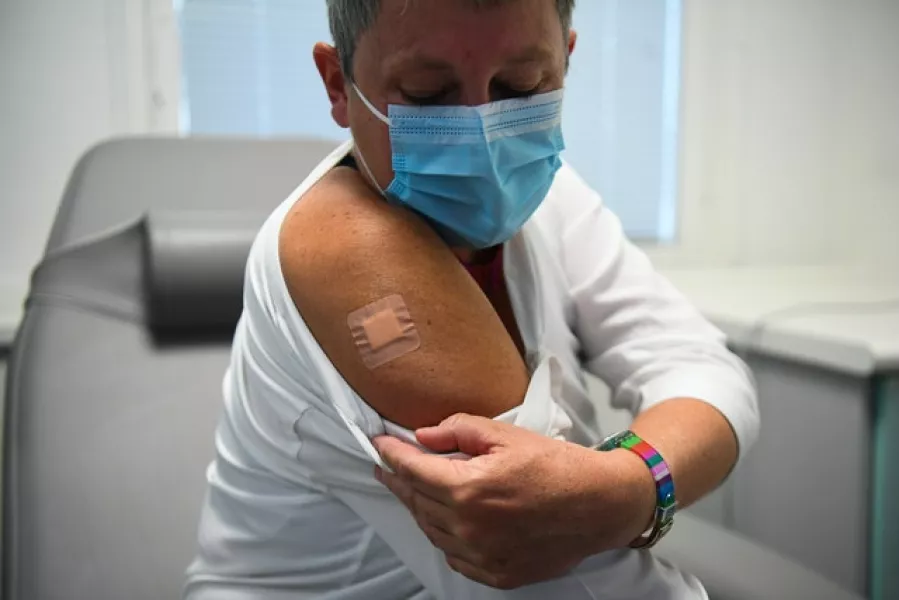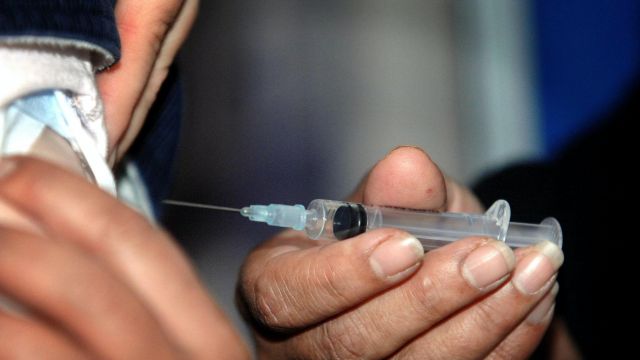Kate Bingham said she was “hopeful” of getting trial data from the Oxford study, as well as the vaccine from Pfizer BionNTech, before the end of the year.
Both studies are currently in phase 3 clinical trials, meaning that the vaccine has been given to thousands of participants to check its safety and effectiveness – the final stage before researchers submit their data to regulators for approval.
If everything works, yes it's possible we could get a vaccine this year but it's most likely that it'll be next year
Ms Bingham said that she felt “optimistic” from the positive data seen so far.
However, she said that people should not assume that a Covid-19 vaccine would be “better” than the flu vaccine “for the moment”.
And she said it would be reasonable to assume that any vaccine would require more than one dose.
The ideal vaccination would provide life-long protection, with the other “bookend” being a vaccine which does not stop infection but reduces severity of symptoms. Anything that falls in that spectrum would be a “plus”, she said.
Asked what the chances were for having the vaccine before Christmas, she said: “I think it’s a slim chance, but there is a chance, that we could have the Oxford vaccine before Christmas.”
Asked about which phase 3 data would report this year, she said: “I’m hopeful that there will be two vaccines where we’ll be able to look at the phase three data this year.”
It would be “possible” for a vaccine this year, she continued, but that depends on a number of factors including ensuring enough people are recruited into the studies and then whether enough infections are seen in the placebo group.
Once enough data is collated this will then be assessed by regulators.
“So, if everything works, yes it’s possible we could get a vaccine this year but it’s most likely that it’ll be next year,” she said.
The UK government has six vaccine candidates in its portfolio, produced by AstraZeneca and Oxford university; BioNTech and Pfizer; Valneva; Novavax; Johnson & Johnson; and GlaxoSmithKline.
Ms Bingham said that the portfolio was “spread across the ones that are most advanced through to the ones that we think are most likely to work and be safest.”
She added: “I am optimistic that we will see something – four of our six vaccines are now in phase three studies, and in each of them we’ve seen very positive data in the phase one and two clinical studies, which shows that people who have received the vaccine do elicit a strong immune response, and that, and if you take the neutralising antibodies that are triggered those antibodies are able to kill live Covid virus.
“So that is very positive and it’s as good as it can be at the moment.
“And we now need to see whether or not those immune responses that we see translate into into protection.”
Ms Bingham added: “The ideal is that you get vaccinated and then you’re protected from infection for life.
“Then the other extreme, the other bookend as it were, would be it doesn’t stop infection, but just reduces the severity of symptoms.
“And frankly, I think anything that that falls in that spectrum, would be a plus.”

She continued: “The vaccines we have for flu are about 50 per cent effective, and they are annual shots, based on the strain that emerges each summer which we then get vaccinated for the winter.
“So, I think it would be fair to say, we shouldn’t assume it’s going to be for the moment, better than a flu vaccine.
“Because that’s an equivalent – it’s a mutating virus and it’s a respiratory virus that gets in through the nose and eyes and respiratory tract.”
Ms Bingham, who is taking part in the Novavax vaccine trial herself, is urging elderly people and people from black, Asian and minority ethnic groups to come forward to join the vaccine trials.
At the moment more than nine in 10 people on the trial (93 per cent) are white, 4 per cent are Asian and less than half a per cent are black.
She added: “What we don’t know is will the vaccines work in everybody?
“And that’s why we’re running the clinical studies, and that’s why we’ve got a call to arms to say to those people who are most at risk of infection – we need them to step up to get to join the vaccine trials so we can show that the vaccines work.”
It comes amid reports that the Johnson & Johnson trial of its Covid-19 vaccine has been paused due to illness in one participant.
But experts stressed that trial pauses are a common aspect of clinical research.
Indeed the Oxford University study was paused temporarily after a participant fell ill, but has since resumed in the UK. The American arm of the trial remains on pause while officials assess the data.
Stephen Evans, professor of pharmacoepidemiology, London School of Hygiene & Tropical Medicine, said: “Normally pauses in recruitment in a trial do not reach the public domain.
“They are frequent where thousands of healthy people are given something new, notably a vaccine.
“The fact that trials are paused should indicate that there should be confidence in the whole process of monitoring the safety of trial participants is working well.”







